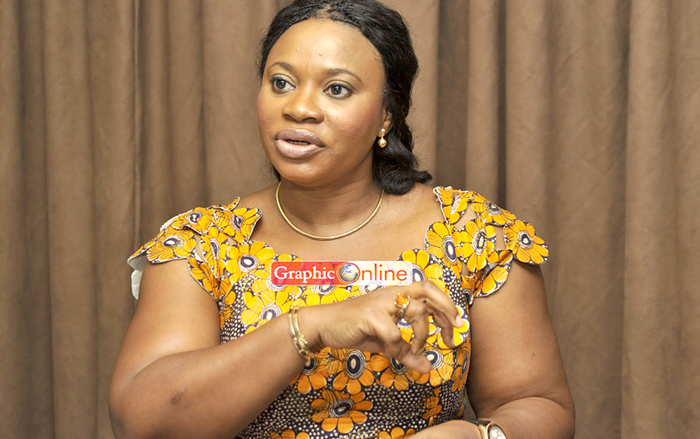
‘EC, NCCE must commit to electoral processes’
A deputy director in charge of Research, Monitoring and Evaluation of the Electoral Commission (EC), Mr Alexander Poku-Akubia, has entreated regional and district directors of the EC and the National Commission for Civic Education (NCCE) in the Upper East Region to avoid attitudes that will undermine the implementation of the various reforms being undertaken by the EC to improve on this year's and future elections.
Advertisement
Addressing a two-day capacity building workshop for the directors on the EC's communication policy and five-year strategic plan in Bolgatanga last Tuesday Mr Poku-Akubia urged them to be committed to the electoral processes and support efforts to effectively implement the EC's communication policy and five-year strategic plan towards successful elections.
He further pointed out that the strategic plans would ultimately help boost the confidence and trust of the electorate, political parties and other stakeholders in the EC.
"These well-thought out strategic documents have well-defined boundaries and limits and so let us help implement it so that the confidence in the EC would be enhanced in this year's and future elections," he stressed.
Relationship
The Regional Director of the EC, Mr James Arthur-Yeboah, observed that it was important for the staff of the EC and the NCCE to update their knowledge and skills on how best to communicate to the public on electoral issues as well as reach out to many electorate as possible on the electoral processes.
Mr Arthur-Yeboah further explained that the EC and the NCCE had constitutional mandates to further help deepen democracy in the country through the conduct of a free and fair elections "and we are happy to be working hand-in-hand with the NCCE".
The Regional Director of the NCCE, Mr Pontius Pilate Apaabey Baba, noted that such interactions were healthy and would eventually be of benefit to the electorate.
"Let us, therefore, see how best we can strengthen this relationship as the years go by with the aim of improving the electoral processes" the director further stressed.
Communication
A Communication Expert, Mr Samuel Akapule, took the participants through the broad objectives of communication, the EC's communication objectives and outcomes, communication department and scope of work, internal and external stakeholders, internal communication policy, aims, objectives and expectations and external communication policy among other topics.
According to Mr Akapule, the EC's communication policy document was "unique and well grounded" but suggested the creation of a communication department to be decentralised at the regional and district levels and to recruit experienced media personnel to man the communication units.
"Communication is a means and not an end in itself; it is vital and unavoidable to the smooth running of organisations both small and big," Mr Akapule further pointed out.
He, therefore, observed that the EC's communication policy would eventually help "enlighten the populace on electoral processes, procedures and decision making to build more public confidence and trust in the EC".
The workshop, which was under a project dubbed "enhancing inclusiveness in Ghana's electoral processes,” was sponsored by the United States Agency for International Development (USAID).




